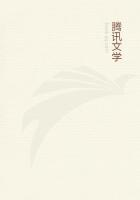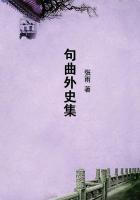It is time to start our analytical geometry. He can come now, my partner, the mathematician: I think I shall understand what he says. I have already run through my book and noticed that our subject, whose beautiful precision makes work a recreation, bristles with no very serious difficulties.
We begin in my room, in front of a blackboard. After a few evenings, prolonged into the peaceful watches of the night, Ibecome aware, to my great surprise, that my teacher, the past master in those hieroglyphics, is really, more often than not, my pupil. He does not see the combinations of the abscissas and ordinates very clearly. I make bold to take the chalk in hand myself, to seize the rudder of our algebraical boat. I comment on the book, interpret it in my own fashion, expound the text, sound the reefs until daylight comes and leads us to the haven of the solution. Besides, the logic is so irresistible, it is all such easy going and so lucid that often one seems to be remembering rather than learning.
And so we proceed, with our positions reversed. I dig into the hard rock, crumble it, loosen it until I make room for thought to penetrate. My comrade--I can now allow myself to speak of him on equal terms--my comrade listens, suggests objections, raises difficulties which we try to solve in unison. The two combined levers, inserted in the fissure, end by shaking and overturning the rocky mass.
I no longer see in the corner of the quartermaster's eye the leery droop that greeted me at the start. Cordial frankness now reigns, the infectious high spirits imparted by success. Little by little, dawn breaks, very misty as yet, but laden with promises. We are both greatly amazed; and my share in the satisfaction is a double one, for he sees twice over who makes others see. Thus do we pass half the night, in delightful hours. We cease when sleep begins to weigh too heavily on our eyelids.
When my comrade returns to his room, does he sleep, careless for the moment of the shifting scene which we have conjured up? He confesses to me that he sleeps soundly. This advantage I do not possess. It is not in my power to pass the sponge over my poor brain even as I pass it over the blackboard. The network of ideas remains and forms as it were a moving cobweb in which repose wriggles and tosses, incapable of finding a stable equilibrium.
When sleep does come at last, it is often but a state of somnolence which, far from suspending the activity of the mind, actually maintains and quickens it more than waking would. During this torpor, in which night has not yet closed upon the brain, Isometimes solve mathematical difficulties with which I struggled unsuccessfully the day before. A brilliant beacon, of which I am hardly conscious, flares in my brain. Then I jump out of bed, light my lamp again and hasten to jot down my solutions, the recollection of which I should have lost on awakening. Like lightning flashes, those gleams vanish as suddenly as they appear.
Whence do they come? Probably from a habit which I acquired very early in life: to have food always there for my mind, to pour the never failing oil constantly into the lamp of thought. Would you succeed in the things of the mind? The infallible method is to be always thinking of them. This method I practiced more sedulously than my comrade; and hence, no doubt, arose the interchange of positions, the disciple turned into the master. It was not, however, an overwhelming infatuation, a painful obsession; it was rather a recreation, almost a poetic feast. As our great lyric writer put it in the preface to his volume, Les Rayons et les ombres: 'Mathematics play their part in art as well as in science.
There is algebra in astronomy: astronomy is akin to poetry; there is algebra in music: music is akin to poetry.'
Is this poetic exaggeration? Surely not: Victor Hugo spoke truly.
Algebra, the poem of order, has magnificent flights. I look upon its formulae, its strophes as superb, without feeling at all astonished when others do not agree. My colleague's satirical look came back when I was imprudent enough to confide my extrageometrical raptures to his ears: 'Nonsense,' said he, 'pure stuff and nonsense! Let's get on with our tangents.'
The quartermaster was right: the strict severity of our approaching examination allowed of no such dreamer's outbursts. Was I, on my side, very wrong? To warm chill calculation by the fire of the ideal, to lift one's thought above mere formulae, to brighten the caverns of the abstract with a spark of life: was this not to ease the effort of penetrating the unknown? Where my comrade plodded on, scorning my viaticum, I performed a journey of pleasure. If Ihad to lean on the rude staff of algebra, I had for my guide that voice within me, urging me to lofty flights. Study became a joy.
It became still more interesting when, after the angularities of a combination of straight lines, I learnt to portray the graces of a curve. How many properties were there of which the compass knew nothing, how many cunning laws lay contained in embryo within an equation, the mysterious nut which must be artistically cracked to extract the rich kernel, the theorem! Take this or that term, place the + sign before it and forthwith you have the ellipse, the trajectory of the planets, with its two friendly foci, transmitting pairs of vectors whose sum is constant; substitute the--sign and you have the hyperbola with the antagonistic foci, the desperate curve that dives into space with infinite tentacles, approaching nearer and nearer to straight lines, the asymptotes, but never succeeding in meeting them. Suppress that term and you have the parabola, which vainly seeks in infinity its lost second focus; you have the trajectory of the bombshell; you have the path of certain comets which come one day to visit our sun and then flee to depths whence they never return. Is it not wonderful thus to formulate the orbit of the worlds? I thought so then and I think so still.


